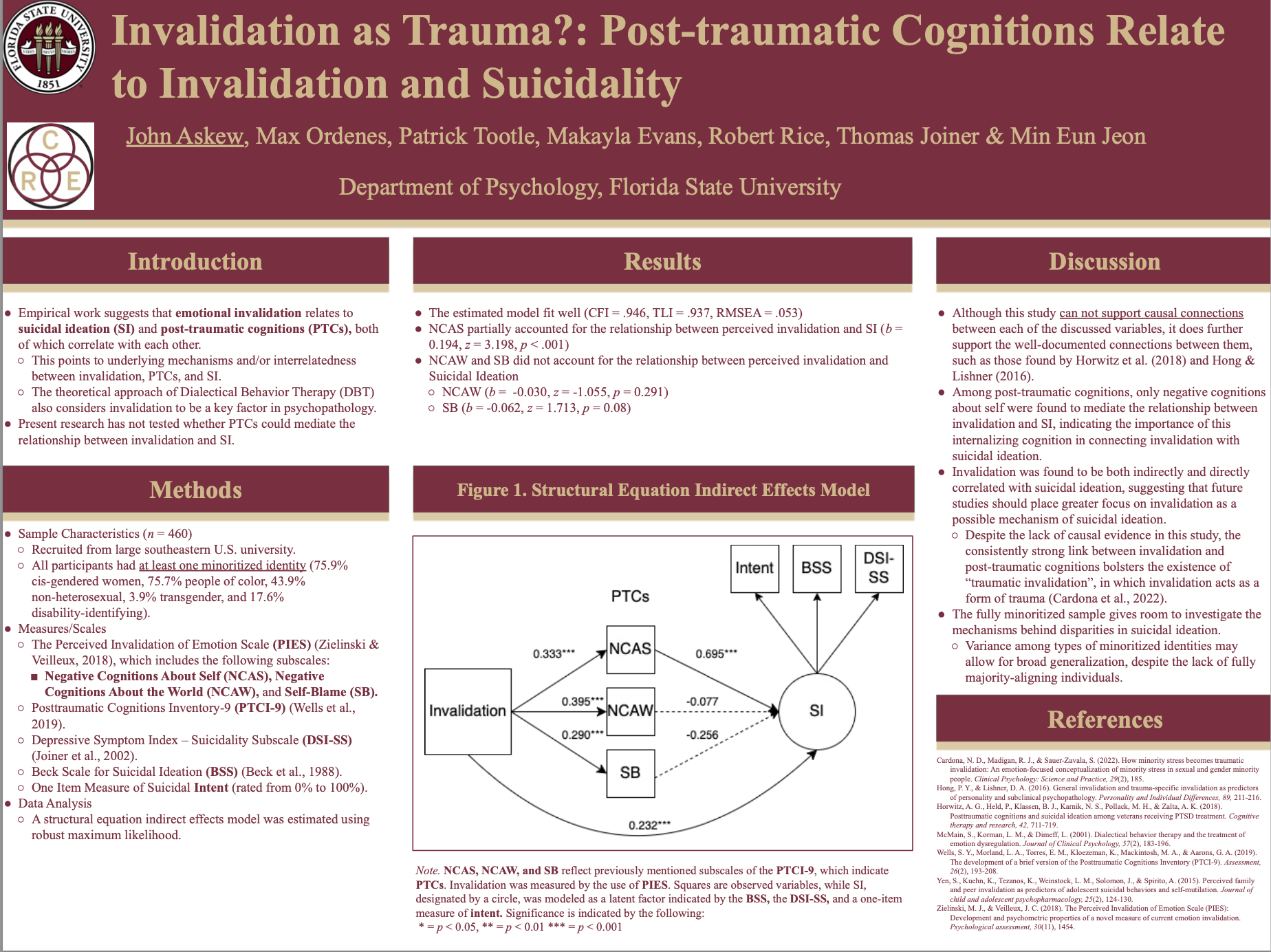Research Symposium
24th annual Undergraduate Research Symposium, April 3, 2024
John Askew Poster Session 1: 9:30 am - 10:30 am /175

BIO
John is a Junior from Salt Lake City, Utah. His research interests center on the intersection between social and clinical psychology, with an emphasis on how social systems and group dynamics impact mental health. He plans to pursue a PhD in Clinical Psychology.
Invalidation as Trauma?: Post-traumatic Cognitions Relate to Invalidation and Suicidality
Authors: John Askew, Dr. Thomas JoinerStudent Major: Psychology
Mentor: Dr. Thomas Joiner
Mentor's Department: Psychology Mentor's College: Arts and Sciences Co-Presenters:
Abstract
Theoretical and empirical work suggests that emotional invalidation is correlated with suicidal ideation (SI) through post-traumatic cognitions (PTC). To discern this potential relationship, an indirect effects model was estimated to test whether PTCs accounted for the relationship between emotional invalidation and SI. A combined sample of adults (n = 460) with at least one minoritized identity (75.9% cis-gendered women, 75.7% people of color, 43.9% non-heterosexual, 3.9% transgender, and 17.6% disability-identifying) was collected across several waves of recruitment from a large university in the southeastern U.S.
A structural equation indirect effects model was estimated using robust maximum likelihood with the following three parallel mediators to examine differential effects across PTC types: Negative Cognitions About Self (NCAS), Negative Cognitions About the World (NCAW), and Self-Blame (SB). The estimated model fit well (CFI = .946, TLI = .937, RMSEA = .053). Results indicated that NCAS partially accounted for the relationship between perceived invalidation and SI (p = .001) while NCAW and SB did not (p’s > .05). Findings indicate PTCs, and in particular NCAS, may serve an important role in the relationship between invalidation and SI. Further research and clinical work that focuses on mitigating the impact of negative self-cognitions may benefit suicide prevention efforts targeting diverse populations, including trauma-focused evidence-based therapies that address NCAS.
Keywords: Suicide, Minority Stress, Invalidation, Psychology, Clinical


